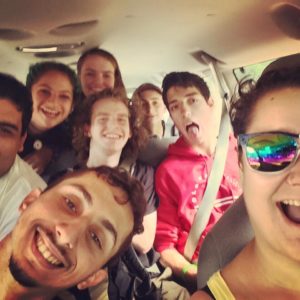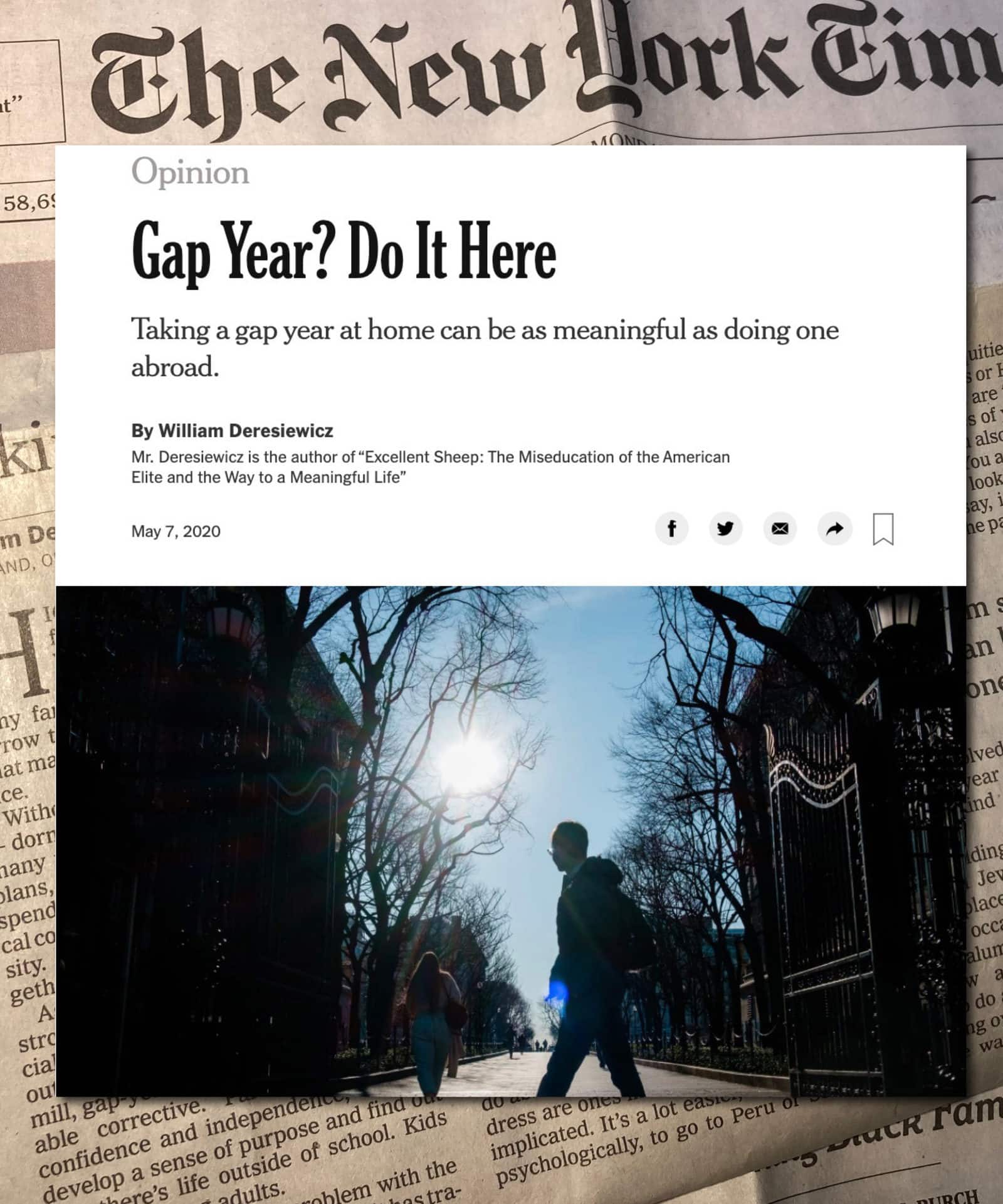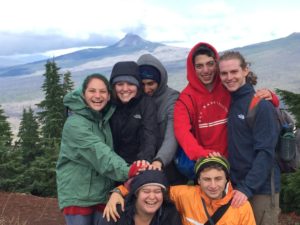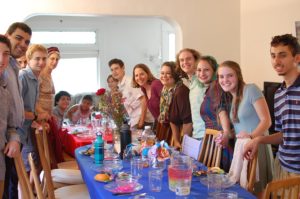by Rebecca Mather
Tivnu Gap Year Madricha
A few weeks ago, I spoke at my mom’s shul about my experiences as an AVODAH corps member and as an employee of Tivnu. I spoke some about my own Jewish journey: about my childhood in the Jewish community of the Greater Chicago Area, about my early interest in social change, including my role as my high school youth group’s Social Action Vice President. I spoke about the four years I spent at Cornell College, a small liberal arts school in eastern Iowa, where I simultaneously grew into my Jewish identity with Hillel and my activist identity with the Sociology and Gender Studies departments. I spoke about the tug I sometimes felt between those communities: that while, in my mind, Judaism and social justice went hand-in-hand, I wished those connections were more clear to others around me. I spoke a bit about the summer I spent as a Lewis Intern through the Jewish United Fund, when I worked with a Jewish anti-poverty organization called Ezra that solidified my belief that Judaism and social justice can, should, and do mix. I explained how all of these experiences led me first to New Orleans, where I spent 11 months building a communal Jewish home, working full time at a social change agency, and learning about the intersections of Judaism and activism with AVODAH, and finally to Portland, where I help guide our incredible Tivnu participants as they create a Jewish communal home and learn about important issues in social justice.

As we all know, selfies are the most important element of community building (Don’t worry, the van was still in the driveway!)
After I spoke, a couple of congregants approached me and told me how happy they were that I had come to speak, that I was restoring their faith in what they thought was dying Judaism amongst young people. And while I am always more than happy to hear about how wonderful and brilliant I am, the truth is that my investment as a young adult in the Jewish world is not exceptional. There is a reason that programs like AVODAH and Tivnu exist: they fulfill the very real needs of young Jews who, just like myself, long for inclusive environments to explore Judaism’s intersections.
One of the most prominent examples of this is the growth of pluralistic Jewish communities. Pluralism acknowledges that there are endless ways to explore and practice Judaism, and that no denomination is more authentic or “real” than another. Jewish pluralism acknowledges the richness that can be found in not just tolerating, but embracing different interpretations of Jewish thought. There is nothing wrong with feeling connected to any one denomination of Judaism, but there is a richness in opening oneself up to other practices; in standing firm in your own beliefs without assuming that different practices are any less authentic or “less Jewish.”
Our Tivnu participants live out pluralism every day and it’s incredible to watch. Our participants live out pluralism when they respect the laws of kashrut in an effort to make sure any Jewish housemate or guest is able to feel comfortable in our home. They live out pluralism when they come together every Friday night and find joyful songs, prayers, and dance that meet each of their spiritual needs. They live out pluralism during our educational sessions when they ask important questions, think critically, debate, and challenge themselves and each other.
Tivnu actively challenges the assumption that we cannot engage our heads, hands, and hearts all at once: that we can’t engage in spirituality, learn about pressing social change issues, and get our hands dirty in social service, and that each of these values are not only authentic, but necessary for a well-rounded community.
The growing focus on social justice in so many Jewish communities is reflective of this dedication to inclusiveness. A Jewish dedication to social justice is certainly not new, and it isn’t surprising. Religious text teaches us that Tikun Olam (repairing the world) is not “charity” or even an act of kindness – it’s an obligation. This means practicing acts of solidarity; it means not working for other communities (whose needs we may or may not actually be aware of) but with communities. It means working to humanize dehumanized “others” and working with disenfranchised communities to create a more just world for everybody. It means utilizing the unique position that Jews have as both survivors of persecution and benefiters of some privileges. The Tivnuniks practice these acts of solidarity every day with the work they do with our partner organizations like Habitat for Humanity, Sisters of the Road, JOIN, and more. The Tivnuniks practice these acts of solidarity by joining the community, interacting with our neighbors, and the larger Portland community.
While a Jewish focus on social justice is not necessarily unique, Tivnu’s approach very much is. There is oftentimes an assumption that a cultural Jewish connection to social justice and a religious Jewish connection are mutually exclusive. This assumption is probably what led the congregant who spoke to me a few weeks ago to point out how refreshing it was to see a young person engaged in Judaism. Tivnu actively challenges the assumption that we cannot engage our heads, hands, and hearts all at once: that we can’t engage in spirituality, learn about pressing social change issues, and get our hands dirty in social service, and that each of these values are not only authentic, but necessary for a well-rounded community.
The heart of Tivnu is community. I would argue that community is a defining characteristic of Judaism, as well. Tivnu teaches young people how to embrace each other, not despite, but because of their differences. That’s a difficult skill that takes constant care; it’s a skill that many adults don’t necessarily have. I’ve watched our participants grow into themselves: into independent, thoughtful, and engaged members of the community. Young Jews seeking community and an outlet for thoughtful social engagement and personal growth are not exceptional. What is exceptional is Tivnu’s response to this call, and the work that the organization does to bring these values, and, in turn, these participants, together in a thoughtful and engaging way.
Follow Us
Sign Up For Updates
Taking a gap year in the US can be as meaningful as doing one abroad.
 Featured in The New York Times
Featured in The New York Times

